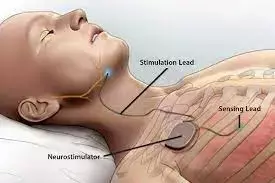- Home
- Medical news & Guidelines
- Anesthesiology
- Cardiology and CTVS
- Critical Care
- Dentistry
- Dermatology
- Diabetes and Endocrinology
- ENT
- Gastroenterology
- Medicine
- Nephrology
- Neurology
- Obstretics-Gynaecology
- Oncology
- Ophthalmology
- Orthopaedics
- Pediatrics-Neonatology
- Psychiatry
- Pulmonology
- Radiology
- Surgery
- Urology
- Laboratory Medicine
- Diet
- Nursing
- Paramedical
- Physiotherapy
- Health news
- Fact Check
- Bone Health Fact Check
- Brain Health Fact Check
- Cancer Related Fact Check
- Child Care Fact Check
- Dental and oral health fact check
- Diabetes and metabolic health fact check
- Diet and Nutrition Fact Check
- Eye and ENT Care Fact Check
- Fitness fact check
- Gut health fact check
- Heart health fact check
- Kidney health fact check
- Medical education fact check
- Men's health fact check
- Respiratory fact check
- Skin and hair care fact check
- Vaccine and Immunization fact check
- Women's health fact check
- AYUSH
- State News
- Andaman and Nicobar Islands
- Andhra Pradesh
- Arunachal Pradesh
- Assam
- Bihar
- Chandigarh
- Chattisgarh
- Dadra and Nagar Haveli
- Daman and Diu
- Delhi
- Goa
- Gujarat
- Haryana
- Himachal Pradesh
- Jammu & Kashmir
- Jharkhand
- Karnataka
- Kerala
- Ladakh
- Lakshadweep
- Madhya Pradesh
- Maharashtra
- Manipur
- Meghalaya
- Mizoram
- Nagaland
- Odisha
- Puducherry
- Punjab
- Rajasthan
- Sikkim
- Tamil Nadu
- Telangana
- Tripura
- Uttar Pradesh
- Uttrakhand
- West Bengal
- Medical Education
- Industry
CPAP fails to reverse metabolic syndrome in most patients of sleep apnea: study

According to a recent study published in Chest, in most patients with obstructive sleep apnea, CPAP is not able to reverse metabolic syndrome.
Obstructive sleep apnea occurs when the muscles in your throat that support soft tissues such as the tongue and soft palate temporarily relax. When these muscles relax, your airway narrows or closes and breathing is momentarily interrupted.
Obstructive sleep apnea is associated with metabolic syndrome (MS), but it is unclear whether treatment of obstructive sleep apnea with CPAP can reverse the metabolic syndrome.
The TREATOSA-MS trial was a randomized, placebo-controlled trial in which adult patients with a recent diagnosis of metabolic syndrome and moderate or severe OSA (apnea-hypopnea index [AHI], ≥ 15 events/hour) were enrolled for administration of therapeutic CPAP or nasal dilator. strips for 6 months (placebo group). We measured anthropometric variables, blood pressure, glucose, and lipid profile before and after each intervention. To check for potency-related mechanisms and outcomes, they also measured biomarkers of adiposity (leptin and adiponectin), body composition, food intake, physical activity, subcutaneous and abdominal fat (visceral and hepatic fat), and endothelial function.
Results:
• One hundred patients completed the study
• Mean CPAP compliance was 5.5 ± 1.5 hours/night.
• After 6 months, most patients with obstructive sleep apnea randomized to CPAP retained a diagnosis of MS, but the MS reversibility rate was higher than that observed in the placebo group.
• In secondary analysis, CPAP did not induce significant reductions in individual components such as metabolic syndrome, weight, hepatic steatosis, lipid profile, adiponectin and leptin, but did only modestly reduce visceral fat and improve endothelial function.
Therefore, the researchers concluded that despite the higher metabolic syndrome reversibility rate after CPAP therapy compared to placebo, most patients retained this diagnosis. The lack of significant or relevant effects on adiposity biomarkers and their stores supports the modest role of obstructive sleep apnea in modulating the metabolic syndrome.
Reference:
Sara Q.C. Giampá, et al. Effects of CPAP on Metabolic Syndrome in Patients With OSA. SLEEP: ORIGINAL RESEARCH| VOLUME 161, ISSUE 5, P1370-1381, MAY 01, 2022. Published: January 18, 2022DOI:https://doi.org/10.1016/j.chest.2021.12.669
Keywords:
Chest, Effects, CPAP, Metabolic, Syndrome, Patients, OSA, Obstructive sleep apnea, Randomized Trial, Sara Q.C. Giampá, Sofia F. Furlan, Lunara S. Freitas, Thiago A. Macedo, Adriana Lebkuchen, Karina H.M. Cardozo, Valdemir M. Carvalho, Franco C. Martins, Indira F.B. Azam, Costa-Hong, Heno F. Lopes, Mariana L. Baptista, Carlos E. Rochitte, Luiz A. Bortolotto, Geraldo Lorenzi-Filho, Luciano F. Drager,
Dr. Shravani Dali has completed her BDS from Pravara institute of medical sciences, loni. Following which she extensively worked in the healthcare sector for 2+ years. She has been actively involved in writing blogs in field of health and wellness. Currently she is pursuing her Masters of public health-health administration from Tata institute of social sciences. She can be contacted at editorial@medicaldialogues.in.
Dr Kamal Kant Kohli-MBBS, DTCD- a chest specialist with more than 30 years of practice and a flair for writing clinical articles, Dr Kamal Kant Kohli joined Medical Dialogues as a Chief Editor of Medical News. Besides writing articles, as an editor, he proofreads and verifies all the medical content published on Medical Dialogues including those coming from journals, studies,medical conferences,guidelines etc. Email: drkohli@medicaldialogues.in. Contact no. 011-43720751


